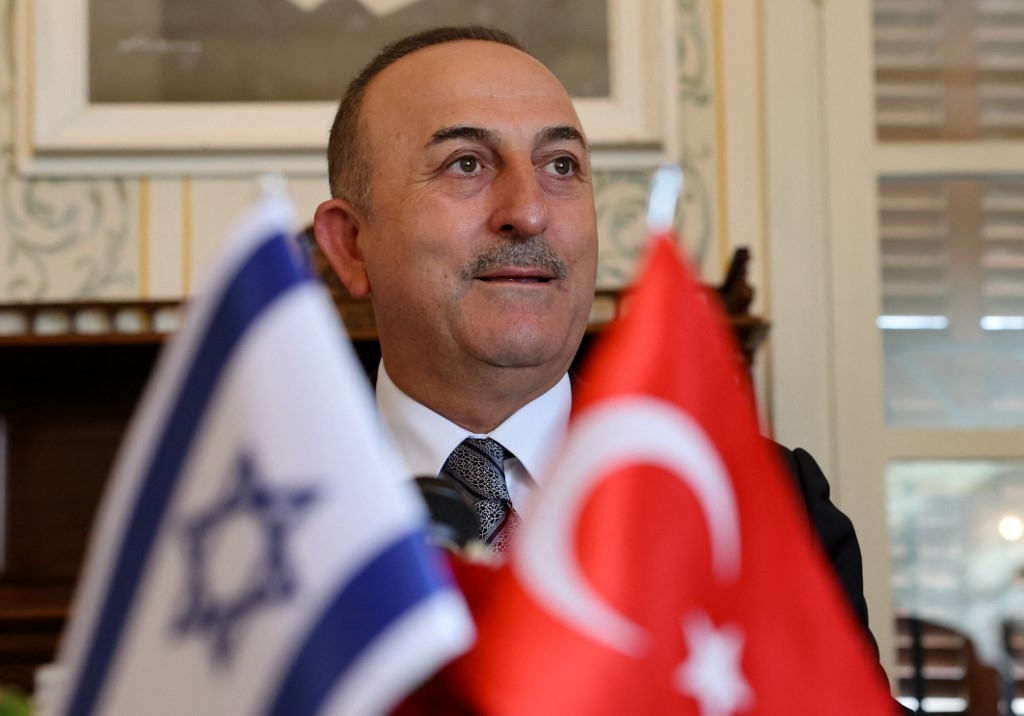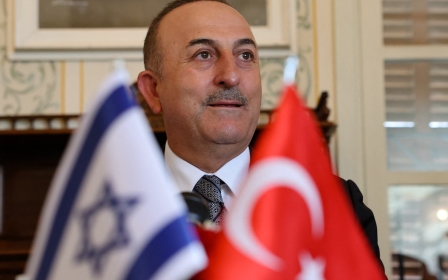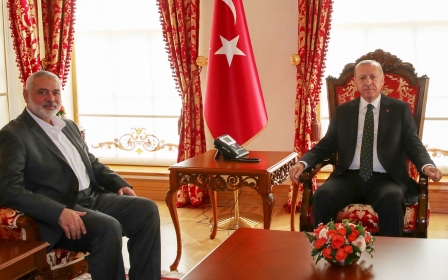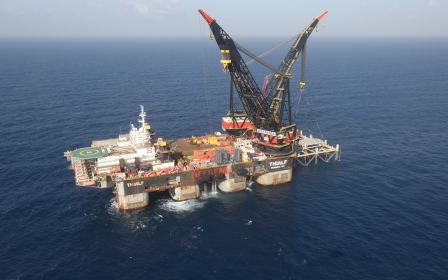Turkey refused Israel's requests to act against Hamas, says official

Turkey refused to comply with Israeli demands requesting the deportation of Hamas leaders living in the country during bilateral talks, Turkish Foreign Minister Mevlut Cavusoglu said on Tuesday at a parliamentary proceeding.
Responding to a question from MPs, Cavusoglu said Ankara does not view Hamas, the Palestinian resistance movement that rules the Gaza Strip, as a terror group and refused to expel them.
“We didn’t satisfy any [Israeli] request on Hamas, because we don’t perceive Hamas as a terror group,” Cavusoglu said. “We are always leading efforts to unify them with Fatah,” he added, referring to Hamas' political rival, which dominates the Palestinian Authority (PA).
'We didn’t satisfy any [Israeli] request on Hamas'
- Mevlut Cavusoglu, Turkey's foreign minister
In late October, Israel's Defence Minister Benny Gantz urged Turkish President Recep Tayyip Erdogan to expel Hamas leaders residing in the country during a visit to Ankara, according to Israeli news website Ynet.
The visit came two months after Turkey and Israel restored full diplomatic relations following years of tensions.
New MEE newsletter: Jerusalem Dispatch
Sign up to get the latest insights and analysis on Israel-Palestine, alongside Turkey Unpacked and other MEE newsletters
Since 2020, Israeli officials have demanded concrete Turkish steps to address the presence of Hamas leaders in Turkey before launching into reconciliation talks. Turkey refused, however, while maintaining relations with the group and continuing to host some of its leaders in Istanbul.
Rocky relations
Some Israeli officials have told Middle East Eye in the past that a reconciliation would not be possible without Hamas leaders being relocated to another country.
However, close Israeli and Turkish intelligence cooperation and regional developments have brought the two countries closer, and in August they mutually assigned ambassadors.
In September Erdogan met with Israel's outgoing prime minister, Yair Lapid, in New York, his first meeting with an Israeli MP since 2008, when Ehud Olmert visited Ankara. The Turkish leader also said last month that he planned to visit Israel after the 1 November elections and that Ankara will maintain good relations based on mutual interests whatever the election outcome.
"As long as values are respected, not only Turkey and Israel but the whole region will gain through win-win diplomacy," Erdogan said.
However, Benjamin Netanyahu’s election victory with a coalition of far-right and ultra-Orthodox parties now risks a rupture between the two countries.
One of the main factors in rocky relations in the past decade has been the Israeli attacks on Palestinians in Jerusalem's Al-Aqsa Mosque and the holy site's status, which could be undermined under the new Israeli parliament. The presence of Hamas leaders remains another point of contention.
Turkish officials have yet to comment on the Israeli election results or congratulate Netanyahu.
Middle East Eye delivers independent and unrivalled coverage and analysis of the Middle East, North Africa and beyond. To learn more about republishing this content and the associated fees, please fill out this form. More about MEE can be found here.




